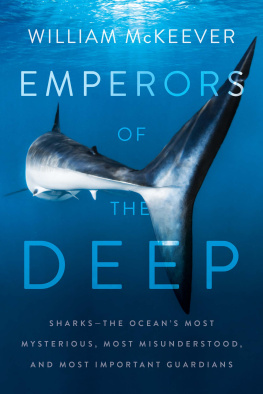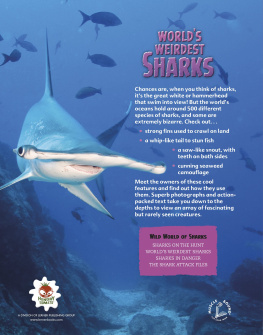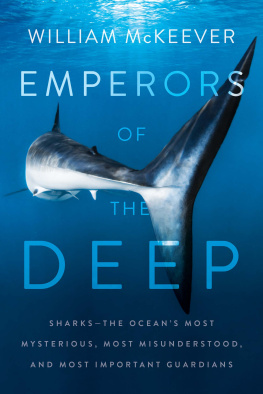I REMEMBER MY FIRST EXPERIENCE IN THE OCEAN. ABOUT five years old, I was with my dad, anchored to his broad shoulders. He swam us out past the break, which offered me a panoramic view of the beach, the surf, the distant horizon: a new vantage point that heightened the oceans tremendous beauty.
My dad liked to swim when the surf was strong, with the waves pounding the shoreline, the kind of surf that the lifeguards warn against taking on. My dad always wanted to test his strength against the waves, to see if the crashing wall of water could knock him off his feet. Most of the time he was left standing. Watching him, I tried to do the same thing, just as any boy might try to emulate his father. One day, when I was ten, the waves were surging, and I summoned the courage to test them. The first wave picked me up and tossed me like a woobie in the wash. I somersaulted and rolled inside the wave, helplessly ransomed in its grasp, until it was ready to spit me out. The sensation of being roiled and tossed and turned and thrown around was totally new. Rather than being scared out of the water forever, I held on to the feeling. I could never predict which way the wave was going to send me, an arm this way, a leg that way, a disorienting feeling I continue to associate with the power of nature. Though a constant source of joy and play for millions of people around the world every day, the ocean was always in charge.
My dad and I would go fishing, and the water wasnt always rough. Out at sea in our skiff in Nantucket Sound, south of Cape Cod, we were in prime territory to land big fish. When my father was ready to cast a line, hed cut the engine, and wed drift. I remember listening to the sound of the waves lapping the hull of our boat and the wind blowing through my ears as the boat rocked gently in the water. After a day of fishing, a ghostly swaying in my legs followed me to bed. Sometimes, as I looked out over the sea, I would see a dark spot just below the surface, jutting this way and that. Every now and again, I could clearly make out a shark, its beautiful dorsal fin slicing through the water. Once, my father caught a dogfish shark, a skinny bottom-dweller, about two or three feet long. I remember being struck by how vulnerable the shark looked, thrashing on the boat deck, desperate for oxygen and an escape route back into the water. Though the dogfish is edible, I pleaded with my father to let the shark go. My father gave in, and I was glad to see the fish swim away, rejoining, I hoped, its family and all the other mysterious creatures swimming deep below the surface.
Those fishing experiences with my dad deepened my appreciation of the ocean and the majestic creatures that inhabit its unseeable depths. When summer ended and the school year started, I went to the library and read every book I could find about sharks. I wanted to learn about how sharks operate, how they live their lives. I wanted to know what sharks were really like. But every book I picked up portrayed them as killers. On television and on the big screen, too, sharks were cast as man-eaters, out-of-control predators. A character would go swimming in a movie, and a shark would come along and take his leg off. Conversely, dolphins were never portrayed as anything other than pure gold, like an honor student at school, the paradigm of good behavior.
Slowly but surely, the prejudice against sharks started to seep into my consciousness. I respected sharks as much as I respected the ocean. Both were beautiful and powerful and, I understood even at a young age, in full controlI and all the other swimmers and fishermen were simply visitors to the underwater empire, vacationers, day-trippers, tourists. While my reverence for the ocean included a deep appreciation of its unpredictable power, my admiration for sharks was less sincere, tinged with suspicion and an almost irrational fear. Though I knew I was psyching myself out, every time I went into the ocean I couldnt help but worry that a shark attack was just a few yards away.
As I quickly learned, I was not alone in this fear.
Continuing my research of sharks, I came across what many consider the event that instilled in the American psyche our widespread cultural fear of sharks. It occurred in the summer of 1916. Over a horrifying ten-day period, four people were killed in the water, and one was seriously injured. The events triggered mass hysteria and, as far as I could determine, the first extensive shark hunt in history. Victim One was attacked on July 2 at Beach Haven, New Jersey. Four days later, 45 miles north, a second victim was attacked in Sea Girt, New Jersey. Immediately, hundreds of people took to their boats, armed with nets, guns, and dynamite. Many sharks were killed, each one identified as the man-eater. When the next three attacks took place on July 12this time in Matawan Creek, 70 miles north of Beach Havenit became clear that none of the captured sharks was responsible. A taxidermist finally claimed to identify the great white culprit after finding a childs shinbone and what appeared to be a human rib in the sharks stomach. Ever since, however, many have questioned the taxidermists theory, pointing out that because great whites cannot survive in fresh water, a single great white couldnt have killed the three people in Matawan Creek, a freshwater tidal inlet. (A bull shark is the only shark species that can swim in both salt and fresh water.) While its likely a great white was responsible for the attack in the saltwater Raritan Bay, the freshwater attacks rule out a deranged, man-eating great white on the loose.
And yet, the single-shark conspiracy prevailed, a questionable-at-best theory that nevertheless served as the basis of a bestselling book, the most famous book ever written about sharks: Peter Benchleys Jaws. Since its publication in 1974, Benchleys novel has sold 20 million copies and has likely shaped our perception of sharks, and great whites in particular. When Steven Spielberg released his cinematic adaptation two summers later, the film locked into place the publics intractable fear of sharks. Jaws sparked a period of great interest in great whites and established the unsubstantiated belief that sharks as a species are nothing more than bloodthirsty man-eaters, apex predators with no other purpose than to kill. The movie certainly had that effect on me. That opening scenein which a young woman is attacked and mercilessly thrashed aboutmade me think twice, as the tagline promised, about ever going in the water again. From the summer of 76 on, whenever I stepped into the ocean, the unsettling specter of sharks scuttled across the deep recesses of my mind, a twitch of fear I tried to ignore while splashing in the surf.
Little did I know that sharks have more to fear than humans. And unlike our fear of them, their fear is justified.
A FEW YEARS AGO, I WAS SPENDING THE WEEKEND IN MONTAUK , New York, a tony community in the Hamptons on the far eastern part of Long Island. Wandering around the marina, I noticed a large crowd gathered around one of the many fishing boats docked there. To my shock, everyone was gawking at a number of dead sharks strewn about the wooden boards, remnants of a recently concluded shark tournament. One sharka blue shark about 8 feet longcaught my attention. The shark was on full display, its white underbelly exposed, bisected by the marine blue of its bodys upper half. Its mouth was gaping open, and a hook protruded from the corner of its mouth. Its internal eyelid had drooped over its eye, which reminded me of a sheet placed over a dead man in a morgue, an appropriate image because I couldnt escape the sensation that I was visiting a murder scene. All these dead sharks had been tossed away like garbage. The sheer number of them on the dock that day rivaled the scenes brutality.










